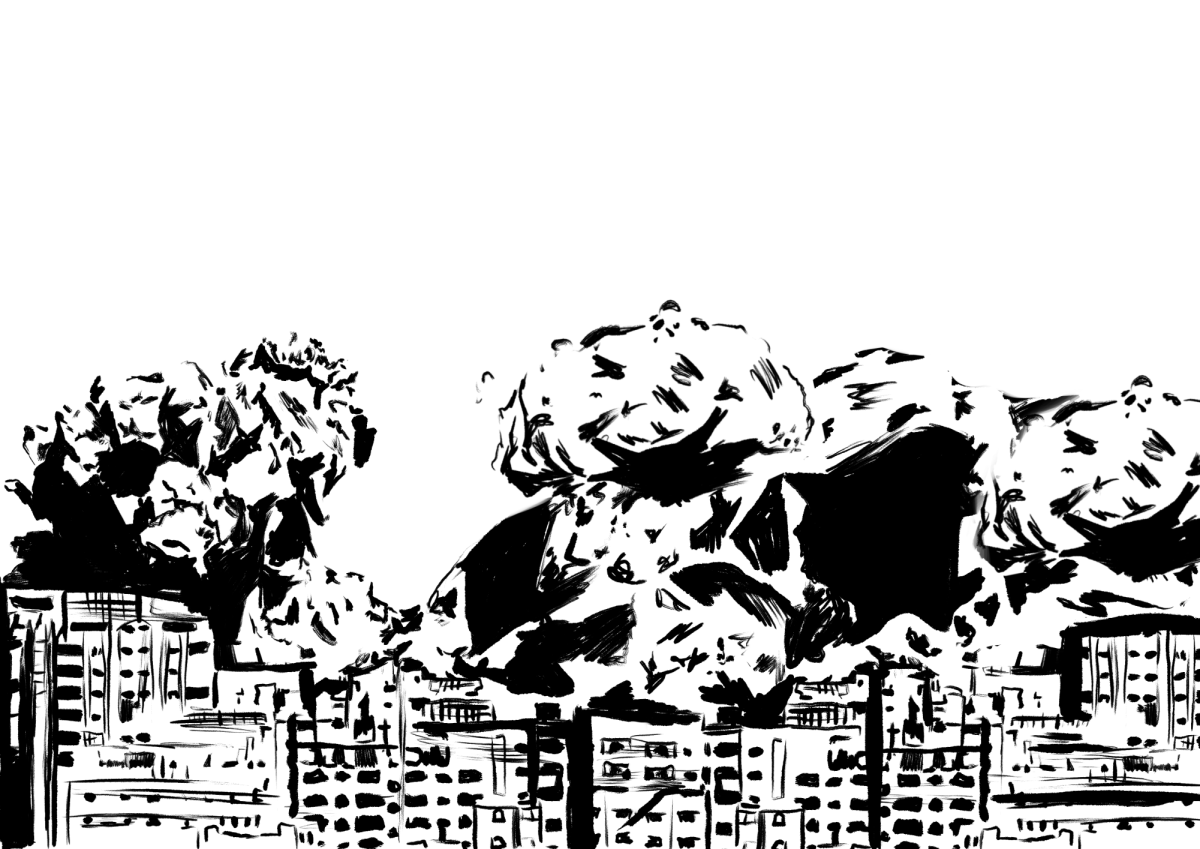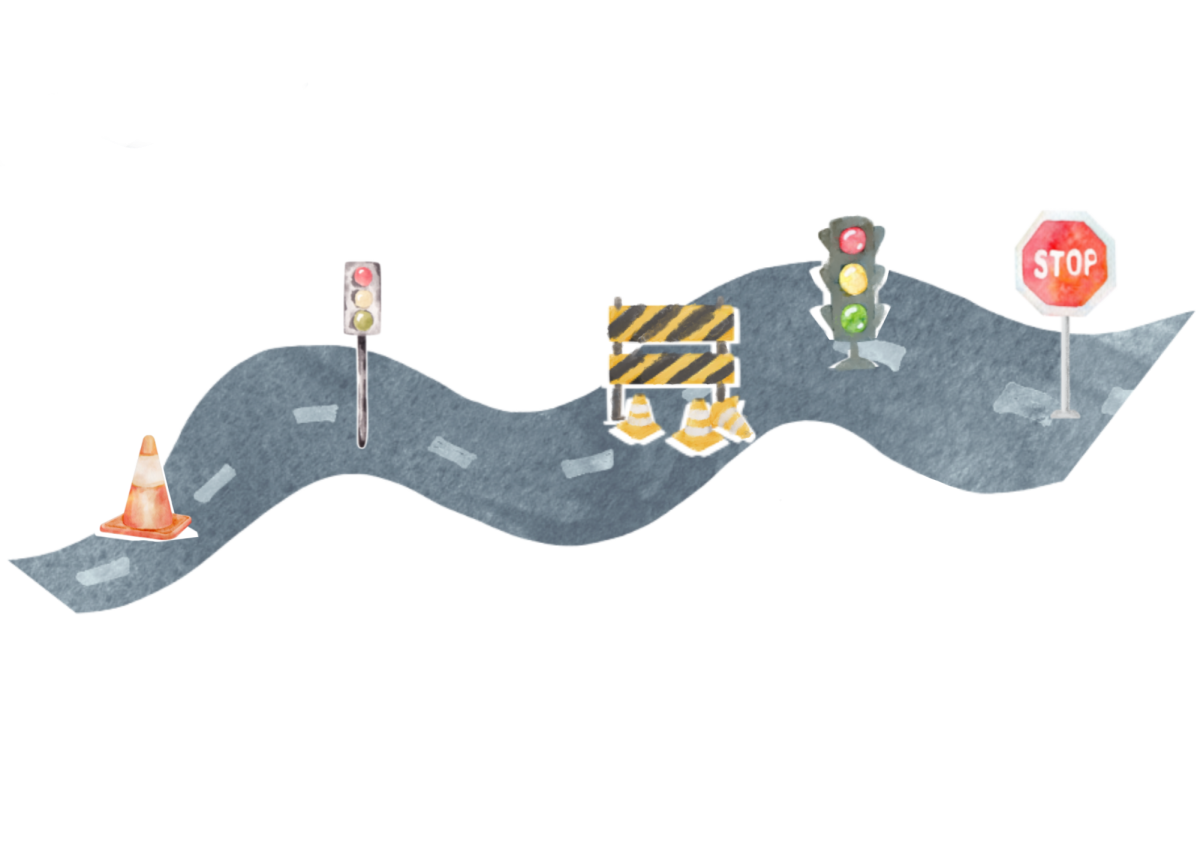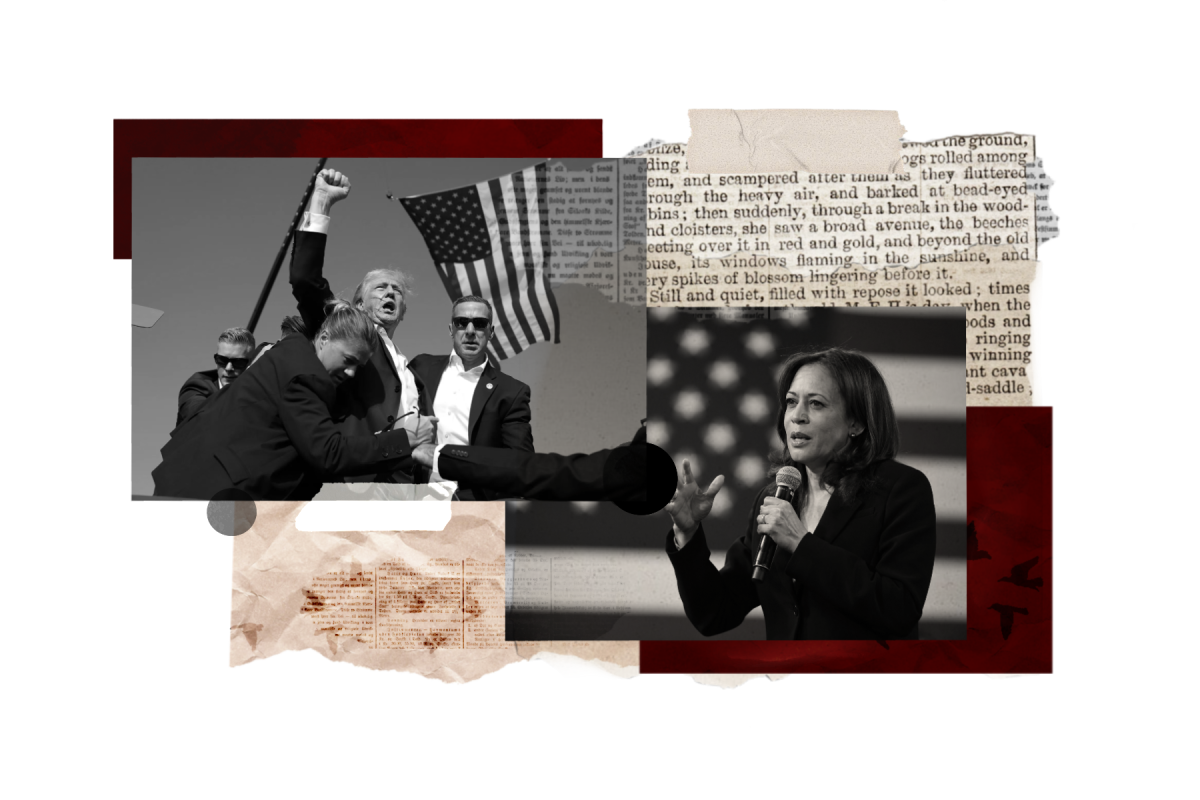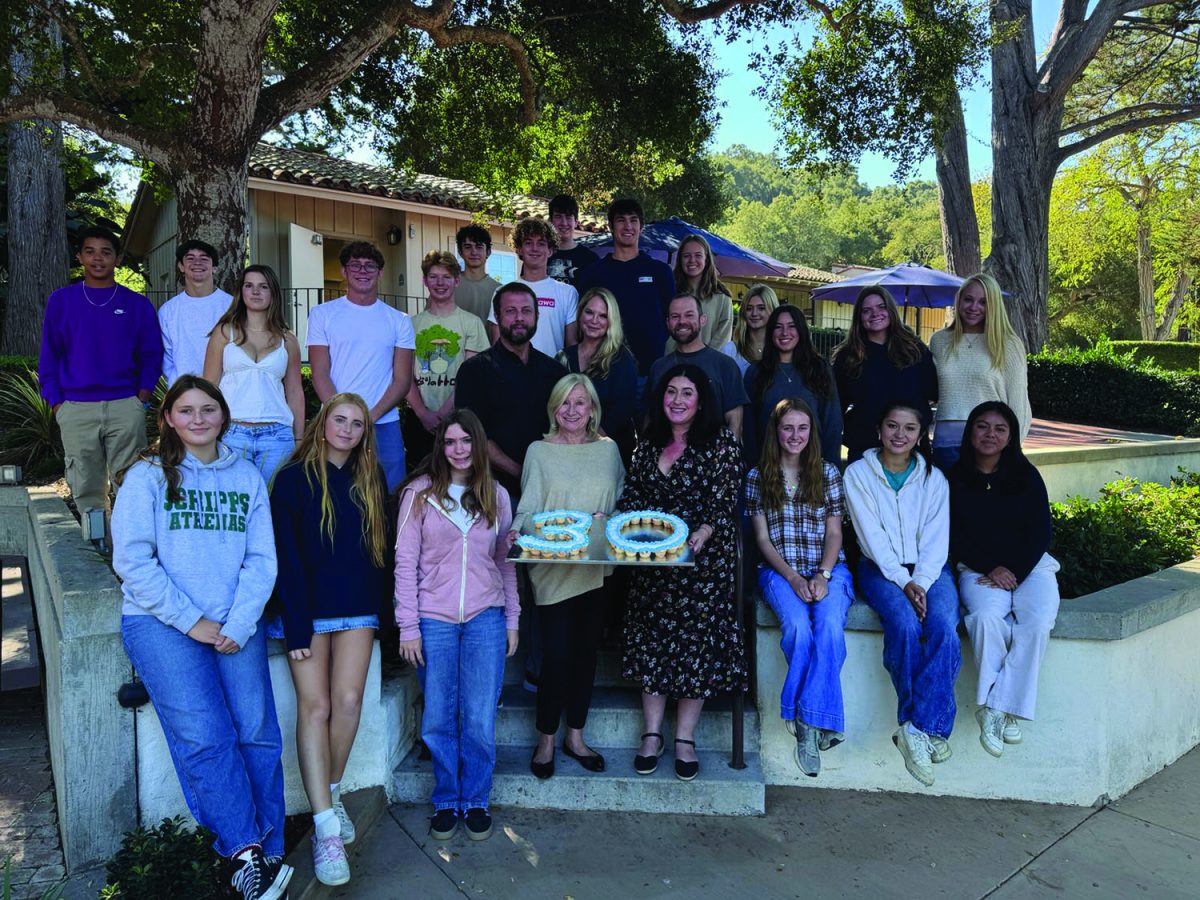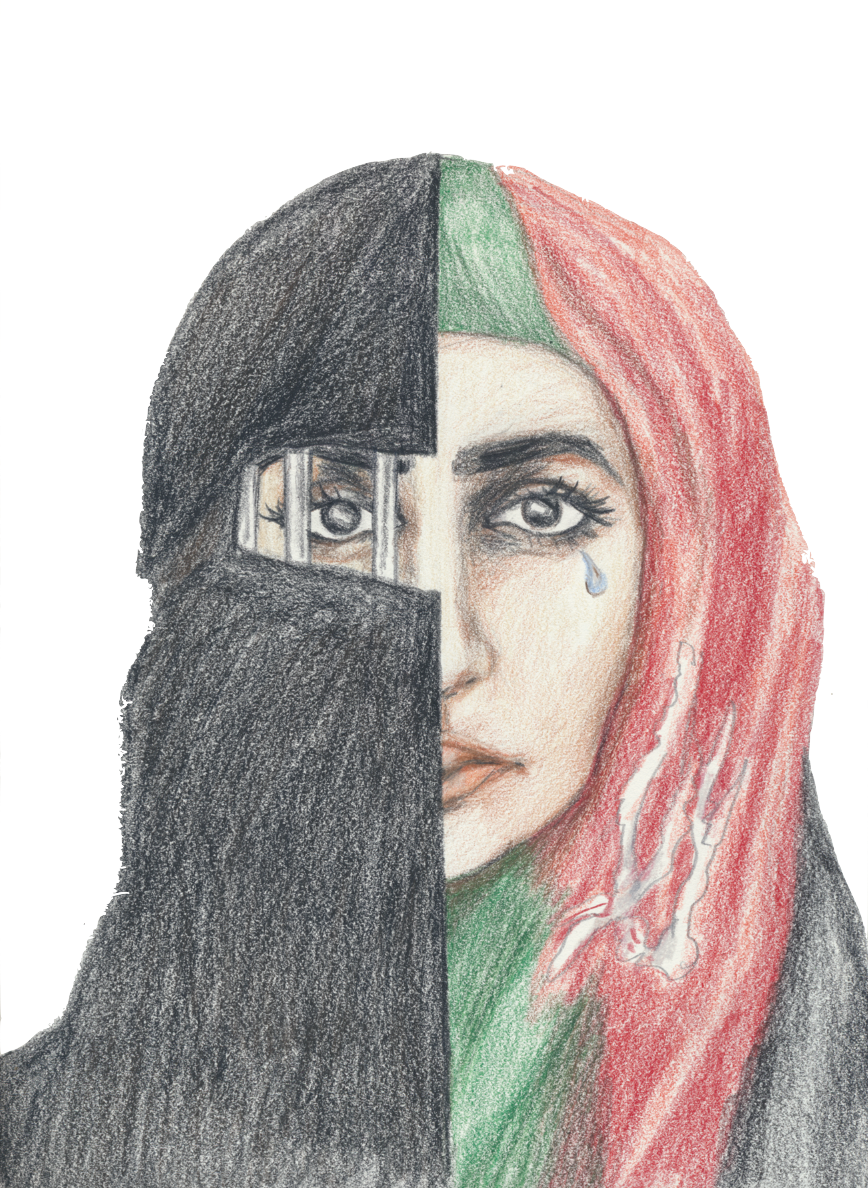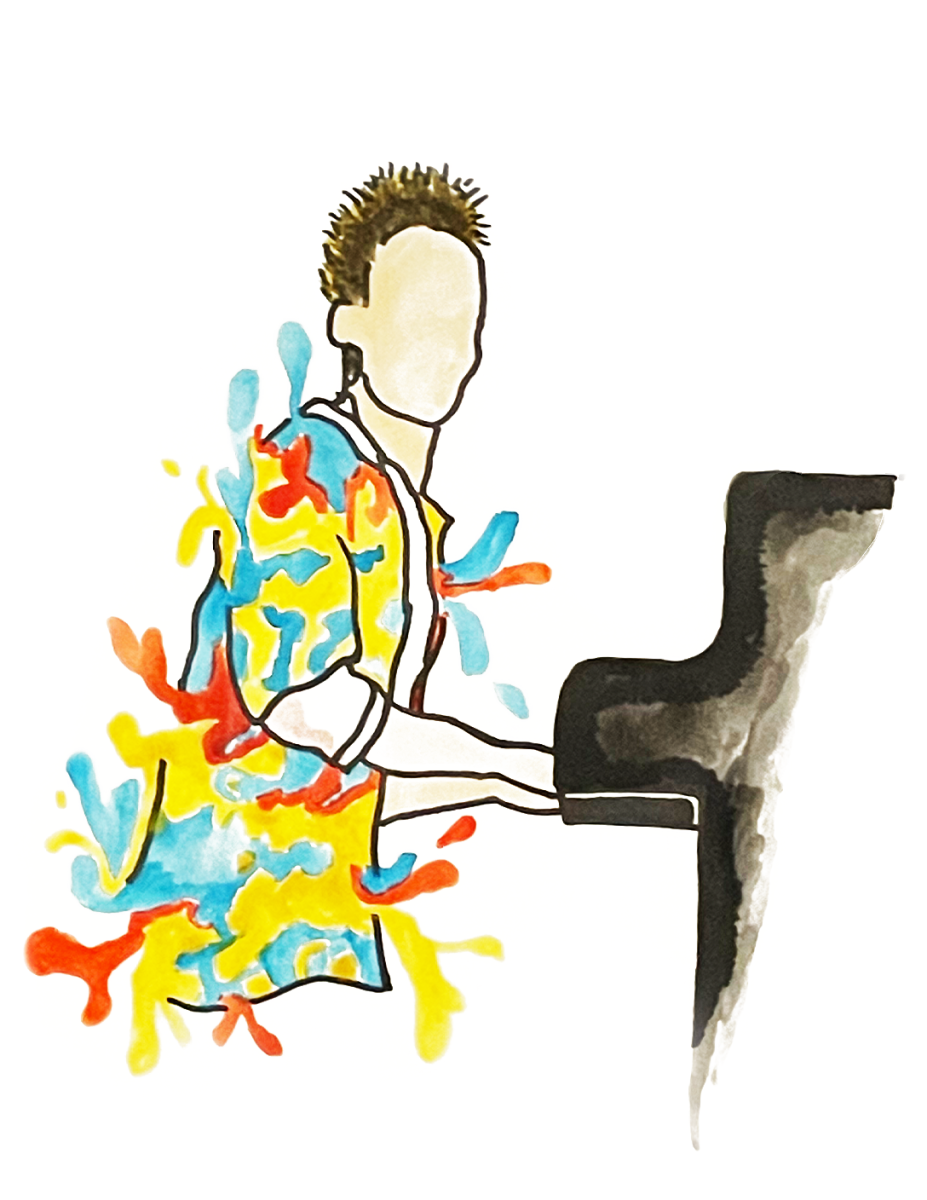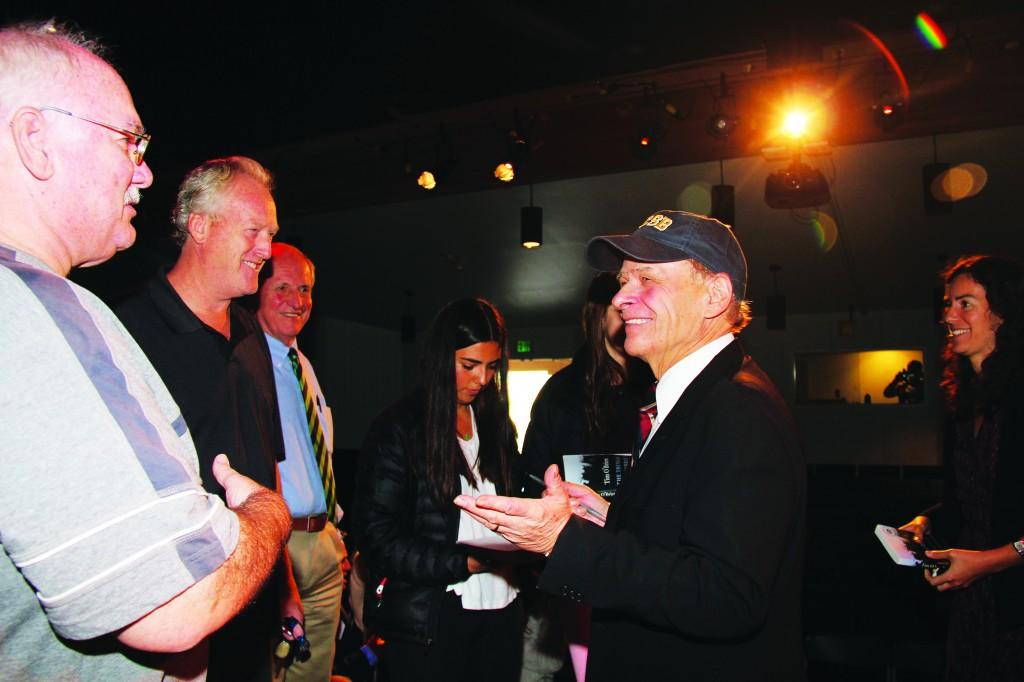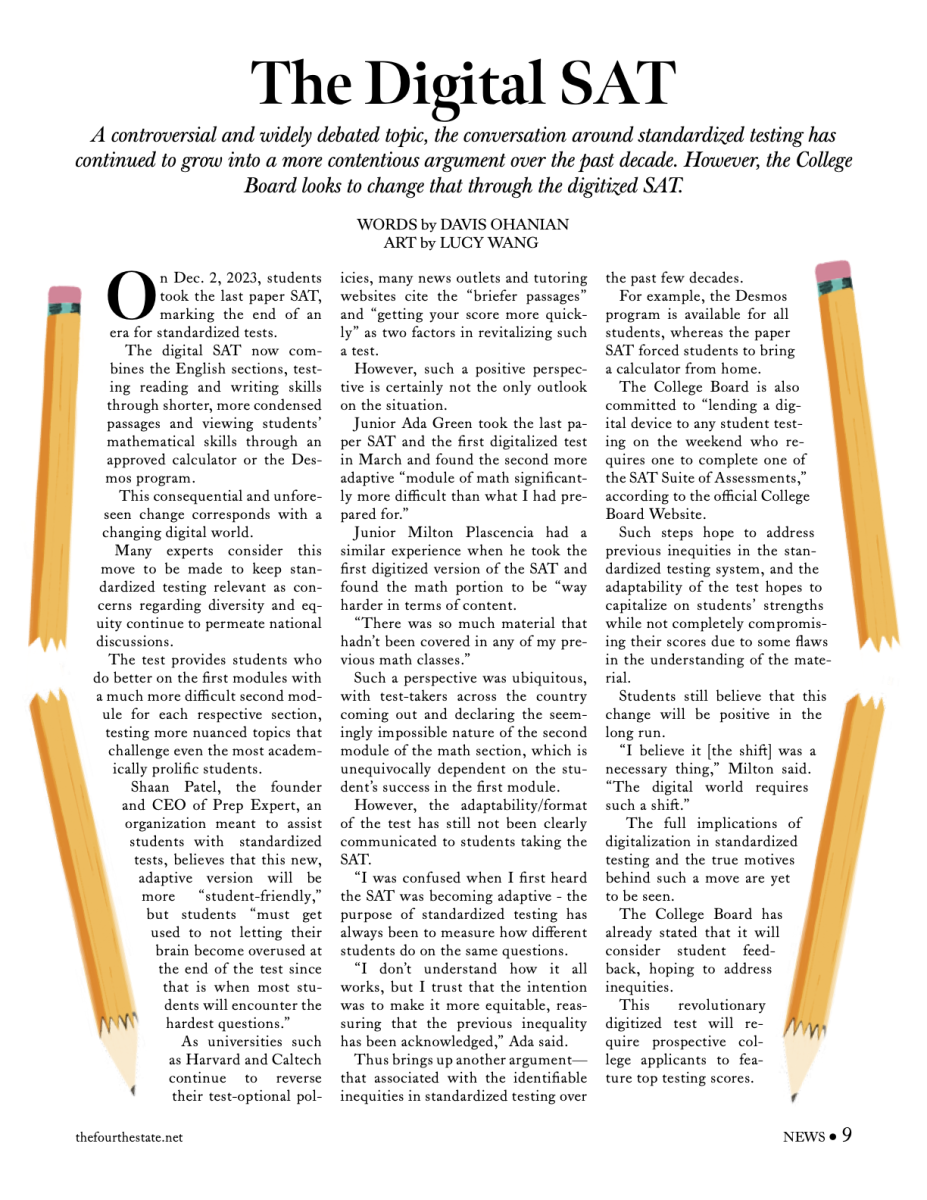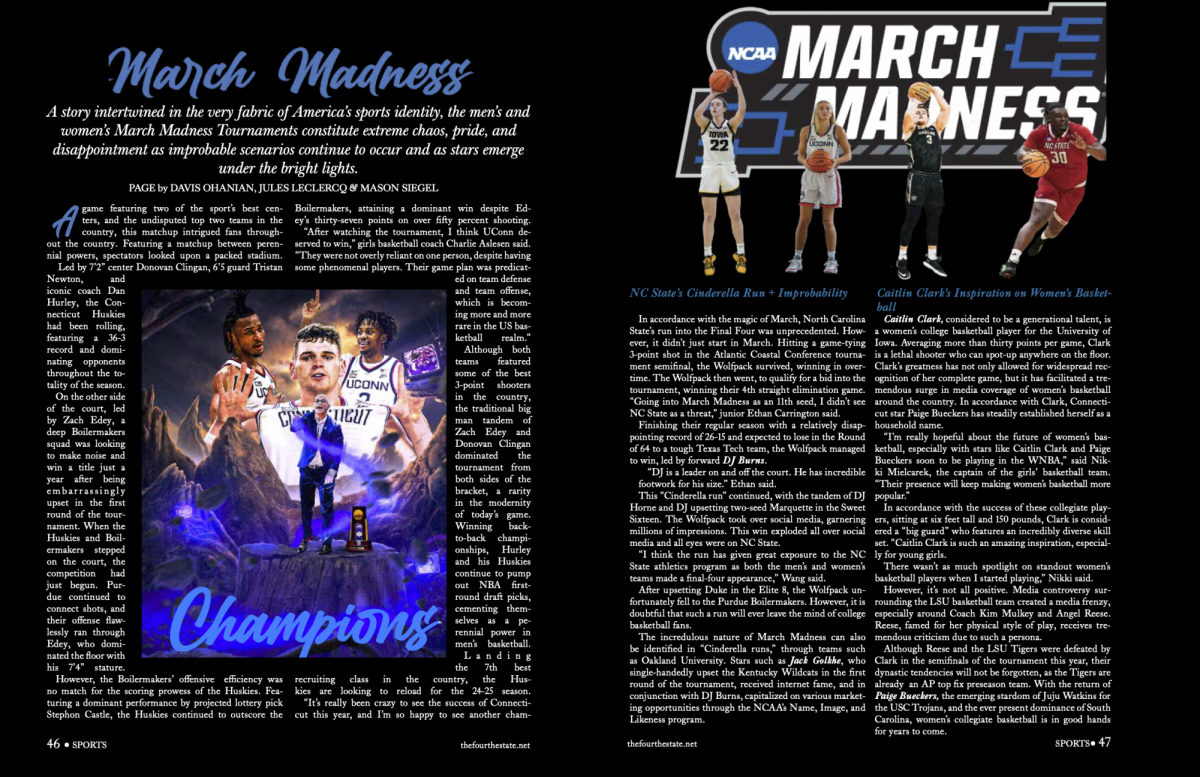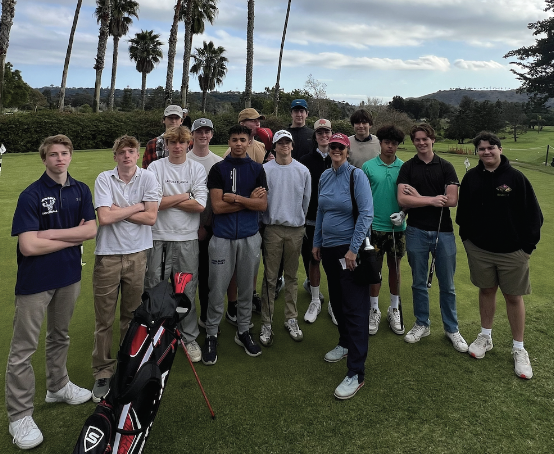In the late morning on Oct. 24, Spaulding Auditorium was buzzing with anticipation.
Two hundred people, a mix of high school and middle school students, parents, and teachers, filled every available seat, including chairs lined in rows on the stage.
All were awaiting the entrance of writer and Vietnam veteran Tim O’Brien, the “major poet of post-Vietnam alienation” and the award- winning author of eight books – including “The Things They Carried.”
“It’s exactly what a serious writer wants,” O’Brien said about the Big Read in his Independent interview with Dr. Charles Donelan, Laguna Blanca’s English instructor. “Not just an internal conversation with your- self but to learn through writing about what other people think.”
According to O’Brien, his interest in how others view his work con tributed to his success as a writer.
PHOTO: CAROLE HARDER
“Part of what can drive people to success is craving the love of a parent,” O’Brien said. “Or the love of humanity in general.”
According to O’Brien, “a man is what he yearns for,” and in his opening remarks, he explained why he has always yearned to write.
In one very effective moment, he described his childhood struggle to be acknowledged by his alcoholic father.
“I can see my dad sit- ting in my living room . . . he was reading a book. And in his eyes there was a look of happiness and delight and rapture that I never saw in my dad. And I remember . . . when I was eight or nine years old how much I wished I was that book.”
O’Brien also described some unexpected effects of his writing, in particular a letter he received after publishing “The Things They Carried”.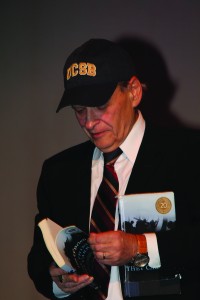
The letter was from a 26-year-old girl who had been meaning to write him since she was in high school and described “how she had grown up in the household of a silent father.”
After finding a box of Vietnam War relics in the basement, she dis- covered what caused his silence.
“The girl takes AP English, and the book they are assigned to read is ‘The Things They Carried’” O’Brien said. “Her father picked it up and read a dozen pages and that night . . . he began talking.”
This letter is a continual reminder of the importance of speaking about his experiences.
“I made a vow in Vietnam that I was not going to stay silent,” O’Brien said.
O’Brien considers the letter a highlight of his career as a writer, not only because he was able to elicit a response from a reader, but also because he was able to make a positive impact on the life of a veteran.
Although conveying his experiences through writing has been a cathartic experience, some
subjects, such as forgiveness and erasure, are still sensitive.
When asked if it is possible to forgive without forgetting, he said that going to war is like “being dipped in crank-case oil; it’s inside your stomach and in your bones, and it’s always there.”
The atrocities he witnessed make it difficult to forgive the people who committed them.
Though it may be easier to substitute a “heroic narrative” for a horrific aspect of reality, Tim O’Brien refuses to forget.
Assembly Program Features Nationally Renowned Author
December 3, 2013
0
Donate to The Fourth Estate
$50
$500
Contributed
Our Goal
Your donation will support the student journalists of Laguna Blanca School. Your contribution will allow us to purchase equipment and cover our annual website hosting costs.


